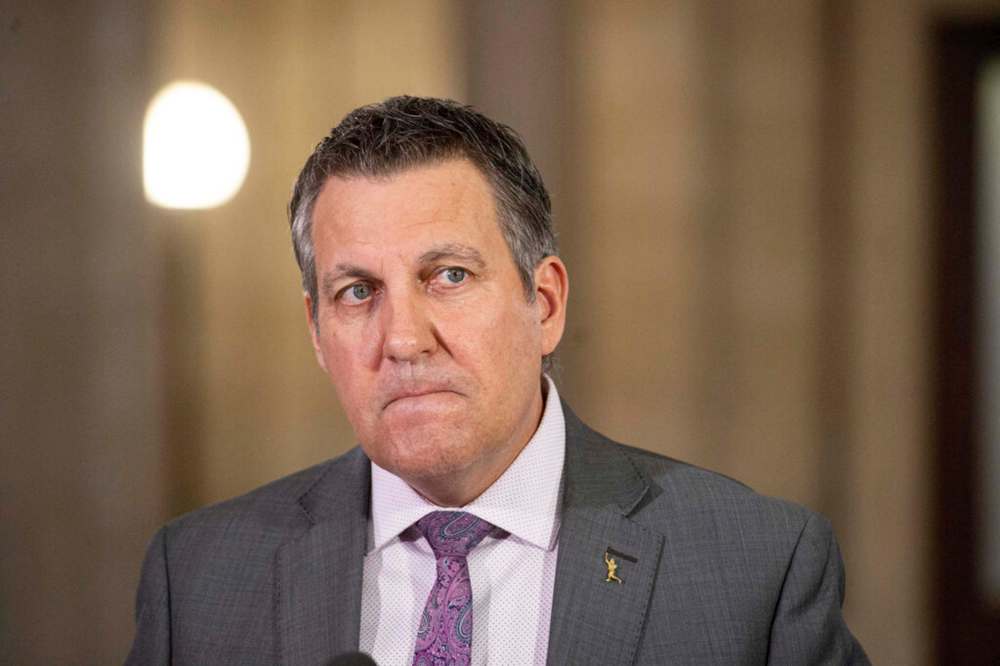Tories plan to make road map for public school reform
Advertisement
Read this article for free:
or
Already have an account? Log in here »
To continue reading, please subscribe:
Monthly Digital Subscription
$0 for the first 4 weeks*
- Enjoy unlimited reading on winnipegfreepress.com
- Read the E-Edition, our digital replica newspaper
- Access News Break, our award-winning app
- Play interactive puzzles
*No charge for 4 weeks then price increases to the regular rate of $19.00 plus GST every four weeks. Offer available to new and qualified returning subscribers only. Cancel any time.
Monthly Digital Subscription
$4.75/week*
- Enjoy unlimited reading on winnipegfreepress.com
- Read the E-Edition, our digital replica newspaper
- Access News Break, our award-winning app
- Play interactive puzzles
*Billed as $19 plus GST every four weeks. Cancel any time.
To continue reading, please subscribe:
Add Free Press access to your Brandon Sun subscription for only an additional
$1 for the first 4 weeks*
*Your next subscription payment will increase by $1.00 and you will be charged $16.99 plus GST for four weeks. After four weeks, your payment will increase to $23.99 plus GST every four weeks.
Read unlimited articles for free today:
or
Already have an account? Log in here »
Hey there, time traveller!
This article was published 14/04/2021 (1702 days ago), so information in it may no longer be current.
Parents will have an opportunity to weigh in on how the province can improve local voice and engagement amid sweeping reforms to the K-12 public school system.
Education Minister Cliff Cullen announced Tuesday plans to create a road map for implementing reforms with the public’s input via regional town halls, workshops with parent advisory councils and school leaders, and new advisory groups on everything from curriculum to inclusive education.
The province is creating a parental engagement task force, which will be composed of MLAs and parents, as well as school and community leaders, to lead 15 virtual town halls and workshops.

Cullen said he also plans to undertake a “teacher listening tour.”
“A lot of the recommendations in the K-12 review were, I would say, goals. There was no road map in terms of how we achieve those goals,” Cullen said.
“This really is about engaging with Manitobans now to determine what that road map looks like.”
One month ago, the province released the final report of the K-12 commission, a list of lessons learned amid the COVID-19 pandemic, and both an action plan and the Education Modernization Act (Bill 64) to address the above two.
The education department indicated public consultations would be held from April to June to pinpoint next steps. The department has collected feedback through an online survey, met with 30 stakeholder groups, and heard from 320 people who work in the education system and are interested in participating in the engagement process.
Bill 64 proposes to replace Manitoba’s 37 English school boards with a provincial education authority made up of government appointees. The new centralized board is expected to oversee hundreds of public schools, each with its own new school community council, within 15 new regions.
Cullen has touted the new school councils, which will be composed of volunteer parents, as part of a model that will empower caregivers.
One local council executive from each of the new regions will serve on an advisory council to the minister and at least two of these representatives will be appointed to the centralized board — the only entity with real decision-making power.
On Tuesday, the minister said the task force leading the upcoming forums will submit recommendations on the roles and responsibilities of school councils, in addition to resources required to support them and address potential roadblocks to participation.
The province is also going to pilot these councils in a few schools to explore “best practices.”
“I’m happy to hear that (Cullen) will be listening to teachers,” said Nathan Martindale, vice-president of the Manitoba Teachers’ Society, about the minister’s announcement about a teacher tour. “I’m sure our members will take him up on that and certainly voice their concerns.”
The NDP education critic isn’t as optimistic the consultations will yield much change, given Bill 64 “doesn’t even reflect 10 per cent of what’s in the education review.”
“This clearly is just another dodge-and-deflect strategy that won’t result in any real changes coming from this government,” said Nello Altomare.
The province plans to publish its road map in September.
maggie.macintosh@freepress.mb.ca
Twitter: @macintoshmaggie

Maggie Macintosh reports on education for the Winnipeg Free Press. Funding for the Free Press education reporter comes from the Government of Canada through the Local Journalism Initiative.
Our newsroom depends on a growing audience of readers to power our journalism. If you are not a paid reader, please consider becoming a subscriber.
Our newsroom depends on its audience of readers to power our journalism. Thank you for your support.


